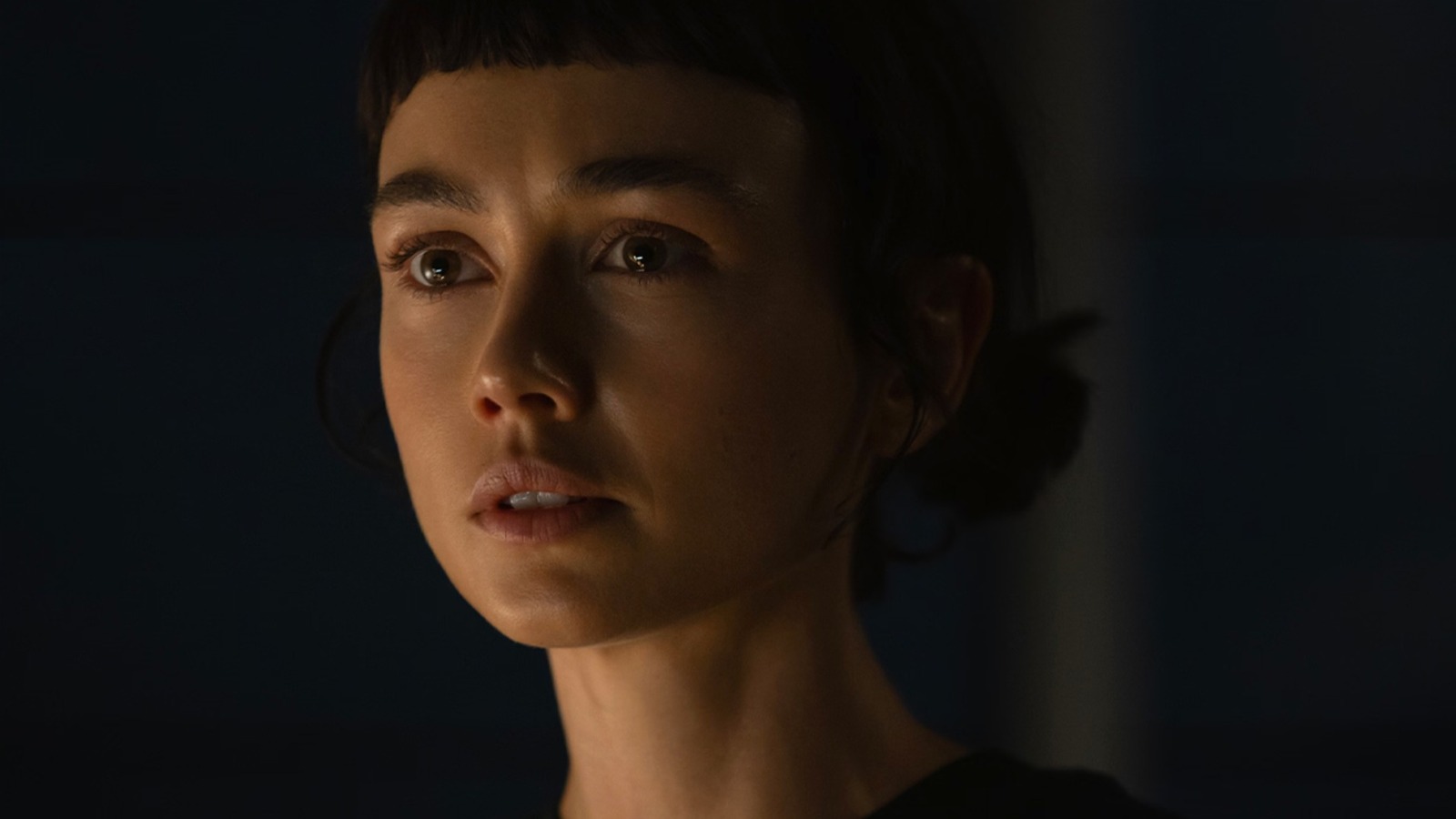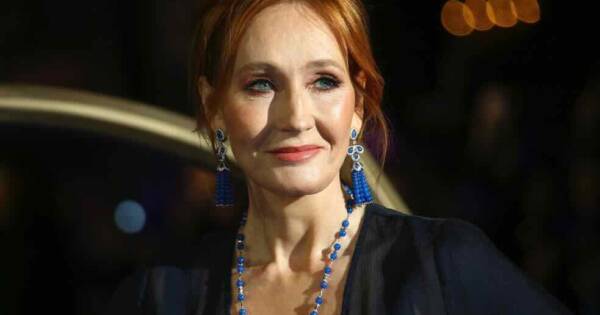- Harry Potter author J.K. Rowling had harsh words for former Hermione actress Emma Watson over remarks made by Watson on a recent podcast.
- Rowling has drawn criticism from LGBTQ+ groups and former collaborators, including Watson, for her anti-trans views.
- In a social media statement, Rowling criticized Watson for being “ignorant of how ignorant she is.”
There’s trouble in the Wizarding World.
As HBO’s series adaptation of J.K. Rowling‘s Harry Potter saga rolls on, the controversial author is making headlines yet again — this time for lashing out at actress Emma Watson, who played Hermione Granger in the films.
For several years now, Rowling has drawn criticism from LGBTQ+ organizations, Potter fans, and many of her former collaborators for statements she’s made about transgender people, specifically that biological sex should be considered separate from gender and that transgender women are not women.
“I refuse to bow down to a movement that I believe is doing demonstrable harm in seeking to erode ‘woman’ as a political and biological class and offering cover to predators like few before it,” Rowling wrote in a 2020 essay. “Women [are told they] must accept and admit that there is no material difference between trans women and themselves … But, as many women have said before me, ‘woman’ is not a costume.”
Watson, who initially expressed her disagreement with Rowling following the publication of that essay, opened up about her relationship with Rowling during a recent podcast appearance, prompting Rowling to issue an impassioned statement criticizing Watson.
Below, we unpack the J.K. Rowling and Emma Watson riff, from Watson’s remarks to the source of Rowling’s anger with her former collaborator.
What has Emma Watson said about J.K. Rowling?
Jaap Buitendijk/Warner Bros.
Following the publication of Rowling’s 2020 essay, Watson took to social media to assert her belief that “trans people are who they say they are and deserve to live their lives without being constantly questioned or told they aren’t who they say they are.”
In a subsequent post, she added, “I want my trans followers to know that I and so many other people around the world see you, respect you and love you for who you are.”
The actress revisited the topic during a Sept. 24 episode of Jay Shetty’s On Purpose podcast. In the episode, Watson discussed how she doesn’t allow her disagreements with Rowling to spoil the warm memories she has of working with the author.
“I really don’t believe that by having had that experience and holding the love and support and views that I have, mean that I can’t and don’t treasure Jo and the person that I had personal experiences with,” Watson said. “I will never believe that one negates the other and that my experience of that person, I don’t get to keep and cherish.”
She went on to express how important it is for her to “keep loving people who I don’t necessarily share the same opinion with,” adding that “whatever the conversation is, [people] should and can be treated with dignity and respect.”
When asked if she’d be interested in having a conversation with Rowling, Watson nodded but also addressed her hesitancy to engage. “I just don’t want to say anything that continues to weaponize a really toxic debate and conversation, which is maybe why I don’t comment or continue to comment,” she said. “Not because I don’t care about her or about the issue, but because the way the conversation is being had feels really painful for me.”
What has J.K. Rowling said about Emma Watson?
Jon Furniss/WireImage
Rowling wasn’t so magnanimous when addressing the ideological split between her and Watson. In the days following the podcast appearance, the author shared a parody by British satirist Intel Lady that characterizes Watson as contradictory and fame-hungry.
“I’m here for ALL the spoofs,” Rowling wrote.
“I have always held space for [Rowling], and so much love in my heart for her, and would hope that she felt the same way about me,” the Watson impersonator says in the clip. “But also, I stand shoulder to shoulder with those who would wish harm on her, hate her, and would wish the absolute worst for her in her life. But though seemingly incompatible, those two things can exist at the same time, which is why I love this incredibly diverse world that we live in.”
On Sept. 29, Rowling addressed Watson’s statements directly in a post on X, saying that she’s “seeing quite a bit of comment about this, so I want to make a couple of points.” In the post, she not only addresses Watson, but also Harry Potter actor Daniel Radcliffe, who has also spoken out against Rowling’s anti-trans views. (Rowling has previously described her positions as pro-feminist rather than anti-trans.)
“Emma Watson and her co-stars have every right to embrace gender identity ideology. Such beliefs are legally protected, and I wouldn’t want to see any of them threatened with loss of work, or violence, or death, because of them,” Rowling writes. “However, Emma and Dan in particular have both made it clear over the last few years that they think our former professional association gives them a particular right — nay, obligation — to critique me and my views in public. Years after they finished acting in Potter, they continue to assume the role of de facto spokespeople for the world I created.”
According to Rowling, her anger with Watson stems not from the actress’ condemnation of her 2020 essay, but rather an incident at the 2022 BAFTA Film Awards, when Watson declared, “I’m here for all of the witches.” Rowling, who took the remark personally, alleges that despite the actress having her phone number, Watson had someone else deliver a note to the author following the event that said she was “sorry for what you’re going through.”
She continued, “This was back when the death, rape and torture threats against me were at their peak, at a time when my personal security measures had had to be tightened considerably and I was constantly worried for my family’s safety. Emma had just publicly poured more petrol on the flames, yet thought a one line expression of concern from her would reassure me of her fundamental sympathy and kindness.”
Dave Hogan/Getty
Rowling goes on to characterize Watson as having “so little experience of real life she’s ignorant of how ignorant she is.” She then takes aim at the life of privilege Watson has enjoyed while discussing how she herself “lived in poverty” while writing the first Harry Potter book. Watson, she claims, will never know what it’s like to “be placed on a mixed sex public hospital ward” or “need a state-run rape crisis centre that refuses to guarantee an all-female service.”
“I therefore understand from my own life experience what the trashing of women’s rights in which Emma has so enthusiastically participated means to women and girls without her privileges,” says Rowling, who accuses Watson of “[cozying] up to an activist movement that regularly calls for a friend’s assassination, then [asserting] their right to the former friend’s love.”
Touching on Watson’s recent podcast interview, Rowling continued, “The greatest irony here is that, had Emma not decided in her most recent interview to declare that she loves and treasures me — a change of tack I suspect she’s adopted because she’s noticed full-throated condemnation of me is no longer quite as fashionable as it was — I might never have been this honest.”
In a reply to an X user who commented on her post, Rowling says she would’ve been “entirely supportive” if Watson had contacted her privately. “What she’s chosen to do instead is yet another bit of public brand repositioning, without talking to me, but using me for her purpose. It’s getting old,” she writes.
A representative for Watson didn’t immediately respond to Entertainment Weekly‘s request for comment.
What have other Harry Potter collaborators said about J.K. Rowling?
Mike Marsland/WireImage
Following Rowling’s 2020 essay, several of the author’s collaborators on the Harry Potter and Fantastic Beasts films affirmed their support for the trans community. They included Watson and Radcliffe, as well as Rupert Grint, Evanna Lynch, Chris Rankin, Bonnie Wright, Katie Leung, and Eddie Redmayne, among others.
Amid the backlash, Ralph Fiennes and Helena Bonham Carter, who played Voldemort and Bellatrix Lestrange, defended Rowling without expressing support for her views. Fiennes decried the “verbal abuse” directed at Rowling as “disgusting” and “appalling,” while Bonham Carter said Rowling has been “hounded.”
“She’s allowed her opinion, particularly if she’s suffered abuse,” Bonham Carter added. “Everybody carries their own history of trauma and forms their opinions from that trauma and you have to respect where people come from and their pain. You don’t all have to agree on everything — that would be insane and boring. She’s not meaning it aggressively, she’s just saying something out of her own experience.”
HBO boss Casey Bloys clarified back in May that, despite Rowling serving as an executive producer on the network’s upcoming Harry Potter series, the show is “not being secretly infused” with her views regarding gender and sexuality. “She’s entitled to those views,” he added. “And I think people are pretty clear that she’s entitled to them.”
In August, filmmaker Chris Columbus, who directed the first two Potter movies, said the controversies surrounding Rowling make it unlikely that there will be a film adaptation of the hit play Harry Potter and the Cursed Child. “It’s gotten so complicated with all the political stuff. Everyone in the cast has their own opinion, which is different from her opinion, which makes it impossible,” he explained.
Want more movie news? Sign up for Entertainment Weekly‘s free newsletter to get the latest trailers, celebrity interviews, film reviews, and more.
Source link


